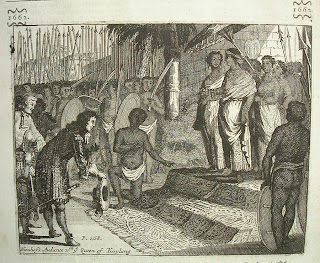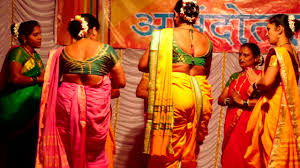Tribal Health Issues
My feelings of compassion and kindness towards the tribal population in general, and more specifically towards the Raj Gonds (sub-sects) of the undivided Adilabad district of Telangana State
How do I say… feel pity or sorry or..or..or...
In general, I am very interested in learning about the way of life, occupations, eating habits, cultural practices, and religious beliefs of aborigines. I, too, am recording it. Only pure enthusiasm and nothing else drives me to do this. I am also curious about the straightforward way of life that appears to be lived to its fullest extent with a level of contentment that we do not possess. Over the course of time, I had the opportunity to get to know a few of the Gond tribal students who attended Adilabad. My eyes were opened to new possibilities by men who were both highly energetic and creative.
Well, in due time, these guys became involved in my work with puppetry, and they also created a fantastic production on "Health awareness" in the Gondi tribal dialect, which was called "Mava Jiva Mava Aasthi." When I started working for them, that's when I realized how terrible their healthcare system was.
In India, the "Health and Education" industries, in general, are neglected by everyone. Over the course of history, each and every government has, rather than working to improve the health and education sectors by systematizing their delivery, neglected these areas. The majority of people choose to send their children to private schools and receive medical care at private hospitals, which actually makes the situation worse.
The villages of the Gond tribe and its subtribes, such as the Pradhan, Kolam, Thoti, Nayakpod, Andh, and Koya tribes, make up the majority of the region. Within these villages, there are a number of hamlets that are located in isolated areas and on the outskirts of forests. In most cases, each property contains multiple homesteads that are used to accommodate multiple generations of the same family. Mud and thatch are the most common building materials for homes. A number of Gonds have recently moved into Pucca homes, which are notable for their quality of construction. The ones that are found in the outlying village on the hilltop are still living in traditional thatched huts.
These indigenous communities have, over time, been sucked into the trap of adopting so-called "modern safe food habits." They have also lost the traditional food crops, traditional foods, and traditional diets, which has led to unsafe health patterns among these aborigines. These tribes' traditional way of life and their ability to make a living have been severely disrupted by the establishment of forest reservations. The indigenous people's knowledge and methods of cultivation, preservation, and growing of crops, as well as their lifestyles and their approaches to indigenous medicinal practises, and so on, have all been drastically altered.
At the beginning of the monsoon season, an increase in cases of diarrhea, malaria, and dengue can frequently be observed. The Health Department of ITDA, Utnoor, has implemented a number of precautions and preventative measures. Preventive medicine, on the other hand, does not inspire optimism and suffers from a lack of follow-up from both the health wing and the tribal population.
There was a report in the news that discussed a positive step taken by the Integrated Tribal Development Agency–ITDA Utnoor, which is the initiation of a health survey in each and every tribal hamlet. On the other hand, I have doubts about how successful the implementation will be.
In today's world, an increasing number of people are being diagnosed with chronic kidney diseases, strokes, and heart conditions. In addition, epilepsy, asthma, and hypertension are all quite common among the tribes. Every six months, a new case of chronic kidney disease (CKD) is reported, and the person who is afflicted with it passes away as a result of delayed diagnosis, a lack of nephrologists, primary health care facilities (PHCs) that are not equipped to treat kidney diseases, dialysis centres that do not function due to a lack of specialists, negligence on the part of patients, and a lack of timely guidance and assistance from the health wing. On the other hand, when viewed from the perspective of the health wing, it can be seen that as a result of the negligence of the government, they are missing paramedical staff, infrastructure, qualified doctors, and specialists.
These groups are very accustomed to taking painkillers such as diclofenac for relatively minor ailments, such as aches and pains in the body. These are offered for free at the PHCs, and they can also be purchased at petty shops. In addition, they drink less water, and thirdly, during the warm summer months, they experience severe cases of dehydration. The pitiful reality is that even the paramedical staff and ANMs working in PHCs do not have a strong understanding of chronic illnesses and the treatment process.
The real cause of CKD is still unknown….
Everything changes when government bodies and PO-Project Officers of ITDAs change, but the health conditions and awareness of the tribes for the tribes remain the same.
I am happy that my journalist friend of the region has covered the same well in The Hindu https://www.thehindu.com/todays-paper/tp-national/tp-telangana/anodyne-for-cattle-mortem-pain-for-humans/article24783410.ece














Comments
Dr.Kavitha
Asst Prof Bio-Chemistry
Gandhi medical College
Hyderabad
Telangana State
India